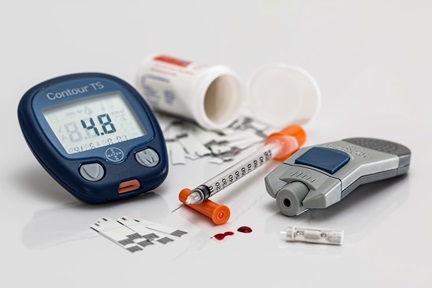
Molecular Renal Probes for Detecting Acute Kidney Injury
Synopsis
Acute Kidney Injury (AKI) poses significant health risks, emphasising the need for early detection. This invention offers molecular probes for timely AKI biomarker identification, enabling real-time monitoring via intravenous delivery or flexible offline testing. These probes enable enhanced patient care and proactive medical interventions.
Opportunity
AKI is increasingly common and linked to progressive loss of kidney function, cardiovascular disease, and death. Early identification of kidney injury, at an incipient stage, allows for reno-protective strategies when more kidney tissue is salvageable. Therefore, early recognition is essential to ensure timely preventive and therapeutic measures, avoiding progression to more severe stages. This need drives intense interest in discovering and identifying serum and urine biomarkers for diagnosing renal cellular injury. The in vitro diagnostic renal biomarker market was valued at $1.3 billion in 2022 and is expected to reach $2.6 billion by 2032, growing at a compound annual growth rate (CAGR) of 7.4%.
Technology
This invention represents a significant advancement in medical diagnostics, specifically targeting the early detection of AKI. The molecular probes developed facilitate the timely identification of AKI biomarkers, offering a potential breakthrough in patient care. These probes enable efficient detection through two distinct methods: intravenous delivery and direct addition to urine samples.
In the intravenous delivery approach (‘online method’), the molecular probes are administered directly into the bloodstream, allowing for real-time monitoring and detection of early AKI biomarkers in urine. This approach provides instantaneous and dynamic assessment, enhancing the efficiency of early diagnosis.
Alternatively, the 'offline method' involves the direct addition of molecular probes to urine samples. This approach offers flexibility in sample collection, enabling diagnostics outside of a real-time setting. The molecular probes, through both methods, are invaluable tools for early AKI detection, paving the way for improved patient outcomes, proactive medical interventions, and enhanced healthcare practices.
![Figure 1: [Left] Acute kidney injury (AKI) detection with molecular renal probe (MRP) using the online method in which MRP is systemically introduced into the mice with or without AKI. The fluorescence images of the mouse clearly indicate the locations of kidneys with AKI. [Right] AKI detection with MRP using the offline method where the urine samples are collected from the mouse with or without AKI. After the incubation of MRP, the fluorescence signals from the urine samples are then detected for the presence or absence of AKI](/images/innovationlibraries/tech-portal/tech-offer/2018-253_figure1.jpg?sfvrsn=9a8c8e14_1)
Figure 1: [Left] Acute kidney injury (AKI) detection with molecular renal probe (MRP) using the online method in which MRP is systemically introduced into the mice with or without AKI. The fluorescence images of the mouse clearly indicate the locations of kidneys with AKI. [Right] AKI detection with MRP using the offline method where the urine samples are collected from the mouse with or without AKI. After the incubation of MRP, the fluorescence signals from the urine samples are then detected for the presence or absence of AKI.
Applications & Advantages
- Early detection of Acute Kidney Injury
- Flexible diagnostic methods using either in vivo (“online method”) or in vitro (“offline method”) approaches
- Substantial validation with clinical samples


.tmb-listing.jpg?Culture=en&sfvrsn=a0428bd8_1)



-with-those-from-other-fungi.tmb-listing.jpg?Culture=en&sfvrsn=3025740f_1)








